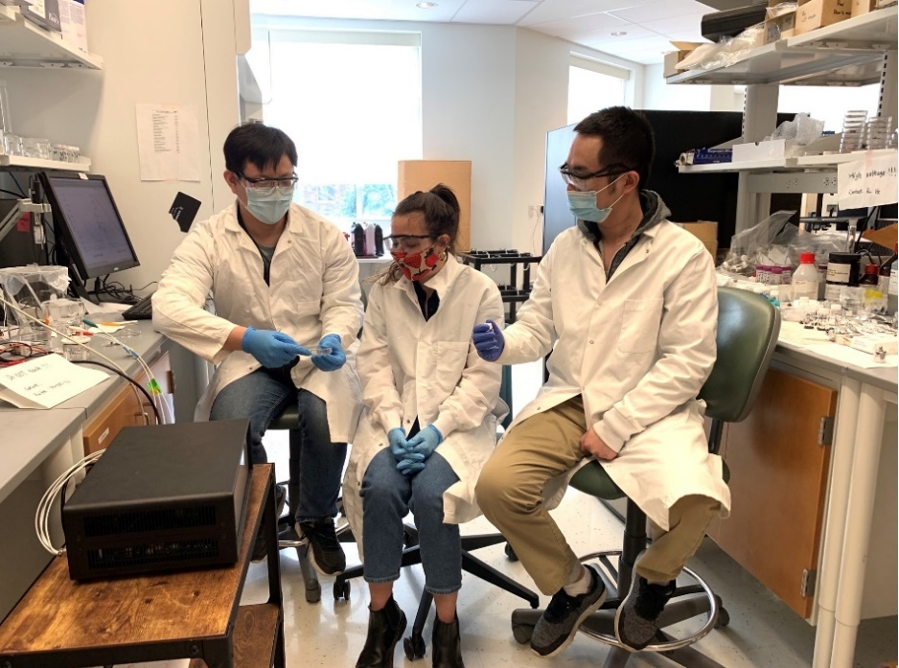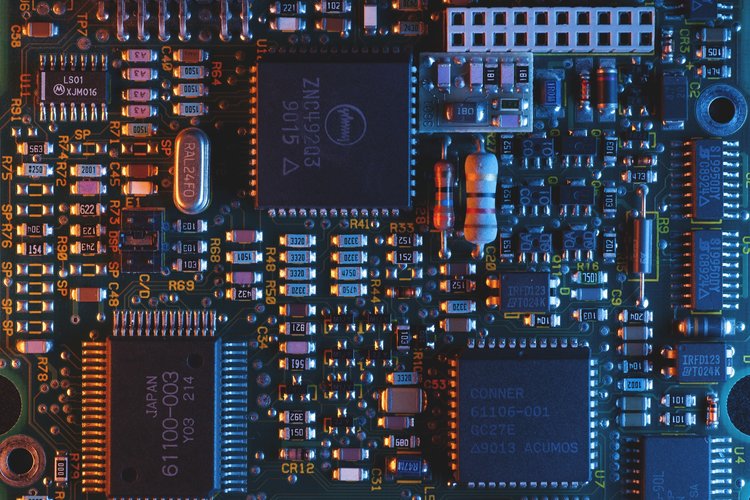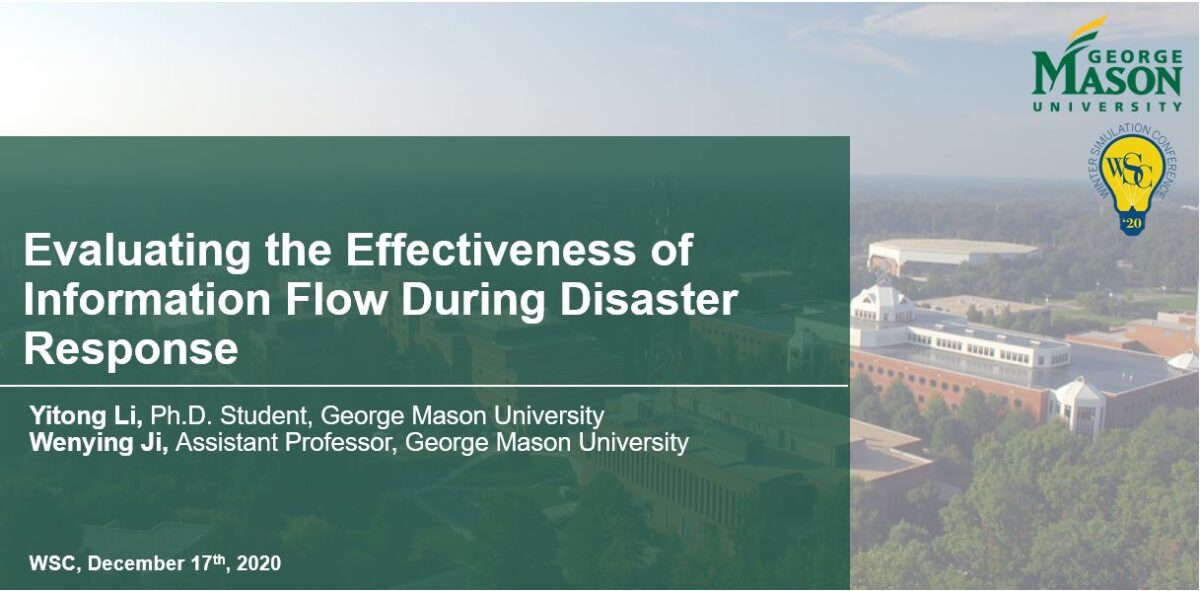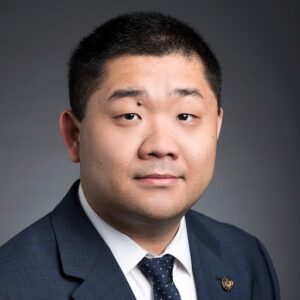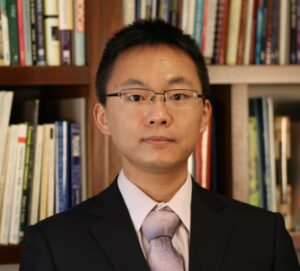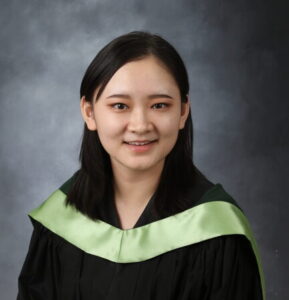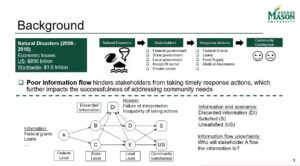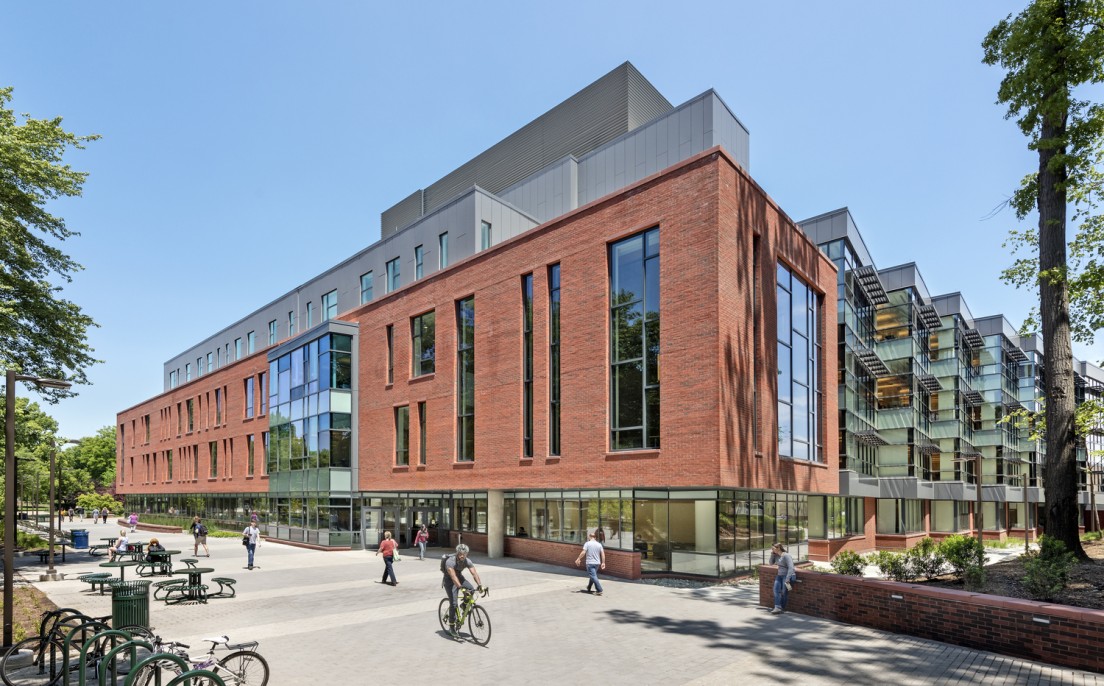With 97% of the world’s water held by oceans, the effort to develop effective saltwater desalination is a high priority amongst the world’s scientists. Of the current water desalination methods, capacitive deionization (CDI) is the most prevalent, where ions and chemicals are energy-efficiently removed from water by applying a low electrical charge. It is acknowledged, though, that there is much more to understand about the kinetics of the process which could improve the salt absorption capacity of CDI.
It was this challenge that caught the interest of Assistant Professor Pei Dong in the Department of Mechanical Engineering at the Mason’s College of Engineering and Computing. However, she recognized that tackling this topic would be substantially boosted by a 4-VA collaboration incorporating research underway in the lab of Baoxing Xu, in UVA’s Mechanical and Aerospace Engineering Department. Xu’s group investigates multiscale/multiphysics modeling and simulations of solid-liquid interactions, especially systems in response to external stimuli such as temperature, electrical, and mechanical fields. Dong believed that by working together, they could investigate the adsorption process to further identify, design, and synthesize more effective carbon materials for use in the CDI process.
Fast forward through the research (complete with a pandemic and the resulting lab closures) — Dong and her team report that they have indeed synthesized different carbon materials which show a much higher salt adsorption capacity. Dong anticipates that this technique could dramatically lower desalination costs and contribute to the sustainable development goals in Virginia, the US, and beyond.
Along with this successful research outcome, Dong explains that the 4-VA project produced several other beneficial consequences, especially a new collaboration among Mason and UVA faculty and students. She also notes the journey provided a rich educational experience for students — with a combination of experimental and computational skills allowing them to contribute to future engineering innovation in this emerging field.
That experience was especially true for PhD candidate, Rui He. He oversaw the project in Dong’s lab, administering the tests — including surface area, water contact angle, electrical property, and water desalination. He also prepared the wood converted carbon and the potassium hydroxide activation. In addition, the team worked together to print a 3D CDI cell and assembled the experimental setup, installing the wood converted carbon into the cell.
“I learned a lot about teamwork,” He explains. “I needed to teach the undergraduates how to run the lab experiments and data analysis as a team, and make sure every step is what we wanted.” He also learned about problem solving, “Sometimes we didn’t get the results we expected, and we needed to find out where things went wrong and fix the problem. For example, the 3D printed CDI cell was a challenge at the beginning because it can’t prevent the leakage of water. We tried a lot of different designs, and finally got one to work.”
Several of the other Mason students involved in the research were undergraduate Crystal Bowers and PhD candidate Xiaozhou Huang. Pictured in the photo are (left to right): Rui He, Crystal Bowers and Xiaozhou Huang.
Thanks to the project’s success, the research has received wide recognition. The work entitled “Binder-Free Wood Converted Carbon for Enhanced Water Desalination Performance” has been published in the high impact journal Advanced Functional Materials. Rui He won the “Excellent Student Presentation Award” in the 242nd Electrochemical Society Meeting for both his oral presentation and poster. This work has also been presented at Virginia Clean Energy and Catalysis Club 2022 Summit (poster) and the International Mechanical Engineering Congress & Exposition 2022 (oral presentation).
The good work continues, thanks to the initial spark lit by 4-VA@Mason.

